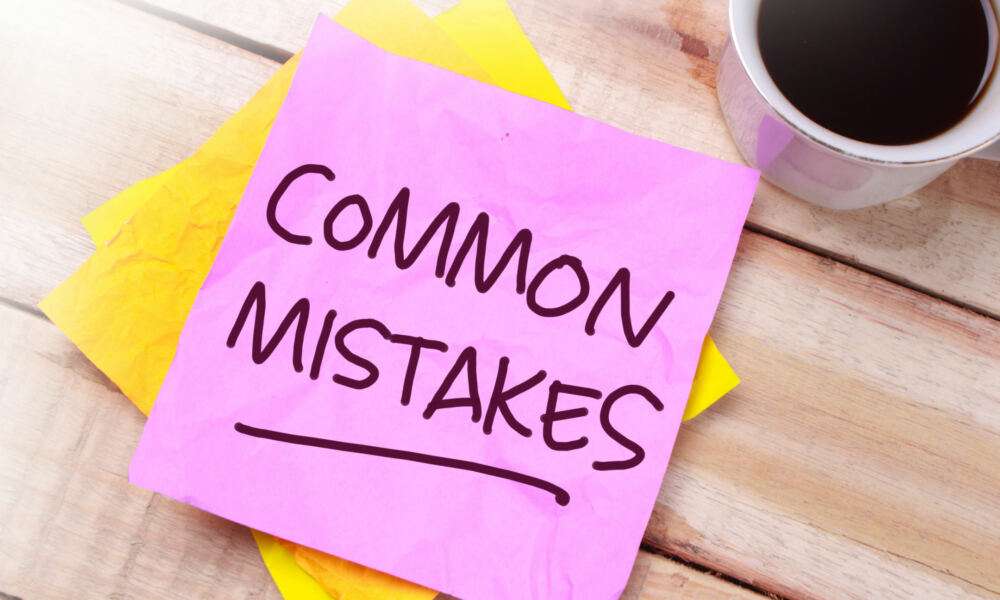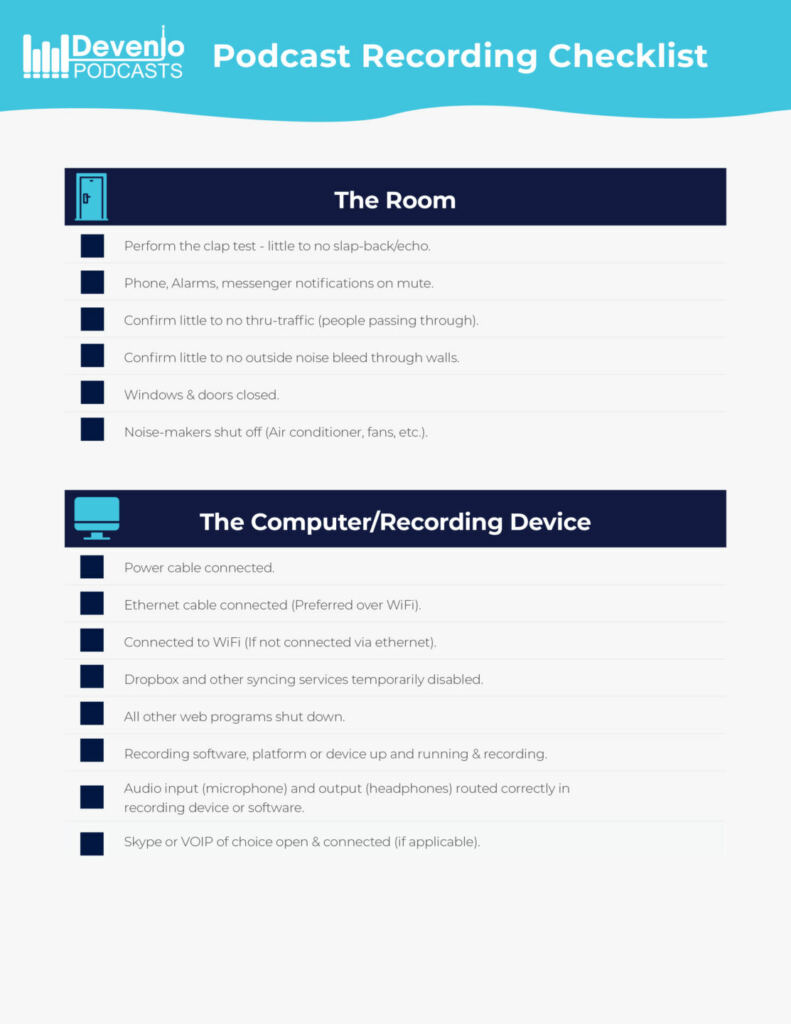Launching a podcast is not a simple content creation exercise; it takes a lot of work and coordination to produce a podcast that — in return — generates the results you want.
New podcasters tend to hit the ground running FAST when they start, making it quite common for them to fall into several rookie habits and mistakes that can limit their project’s potential. Most of my initial conversations with new podcasters revolve around these common mistakes, but podcasting veterans can also be found guilty of falling into some of these traps as well.
Here are some of the common rookie mistakes podcasters make, along with tips and guidance on how to avoid them so you can set your podcast up for success from the start.
1. Don’t Overcommit Without a Plan

Successful podcasts are not ad-hoc. Like any other big project, a podcast should begin with a detailed game plan to set a foundation with clear expectations. This game plan should include the critical task of creating an episode schedule that works for you.
Don’t overcommit. While most successful podcasts air weekly, that doesn’t mean you have to start there! Work up to it by creating a bi-weekly — or even monthly — production schedule that you can quickly scale as the podcast gains traction.
Missing publishing dates can lead to listeners turning a deaf ear; consistency is essential, so plan accordingly!
2. Don’t Assume Issues Can Be “Fixed in Post”

It is an audio industry rule of thumb: “Get it right at the source.”
The final audio can only be as good as it was recorded. While editors and audio engineers have some fantastic tools to fix problematic audio, it will never sound as good as it could be if you don’t address the problem at the time of recording. So be sure to get your audio right from the start.
Don’t expect your editor to save the day every time. If your microphone is making some noise, don’t be afraid to stop the recording to quickly troubleshoot the problem. If you make a mistake during recording, pause, take a deep breath, and re-record the section to get a fresh, natural take.
3. Don’t Forget To Use Headphones

Speaking of getting your audio right from the start, the Golden Rule of Podcast Recording is ALWAYS to wear headphones. This is especially important when recording remotely.
Have you ever had an audio bleed from your computer speakers through your microphone and create that echoey cross-talk often laughed about during corporate Zoom meetings? Well, that audio bleed is next to impossible to edit and leaves your recording sounding awkward and unnatural.
Always remember: use your headphones. And make sure you have your guests do the same!
4. Don’t Forget to Prep Your Guest

Most folks new to podcasting understand that it’s best to prep the guest on discussion topics. However, there is a lot more that goes into a successful podcast recording than that. This can include:
- Technical expectations: Ensuring guests have headphones, mics, and their workspace prepped for the recording session.
- Moral ground rules: Does the podcast require a specific tone? No profanity? No adlibbing? Address this before the recording date.
- Follow-up expectations: Discussing promotion plans with guests ensures that the episode gets as much traction as possible. The last thing you want is your guest reaching out three months later asking for the recording because they never saw it went publish!
Coordinating with your guests ahead of time, and prepping them with what to expect on the recording, is a great way to avoid potential issues during the recording session. It also helps ease your guests’ nerves! We suggest creating a checklist for all guests that they can use to prep and keep in front of them before and during the recording session.
5. Be Sure to Think of the Next Steps

Your listeners are listening for a reason. They want more content from you, and it’s why they subscribe to your content! But why wait for the next episode? It’s important to give listeners the next steps so they can continue to gain value from your podcast in between episodes.
The outro is the perfect place for these next steps to be addressed. We commonly hear outros where the host signs off without any guidance on where the audience can get more content. Be sure to plan out a thorough outro that answers the questions:
- Where can they subscribe, so they don’t miss an episode?
- Can they follow you on Twitter to join ongoing conversations?
- Is there any other content you’ve published that is related to the topic you covered in the episode?
Furthermore, you should appropriately hyperlink all the relevant items above in your show notes. You can then point to the show notes in the outro!
And there it is, some of the most common rookie mistakes we see on a regular basis. Acknowledging these mistakes and avoiding them will quickly help you level-up your podcast production process and ultimately the quality of your content!
Until next time…. Go get em’ champ!



